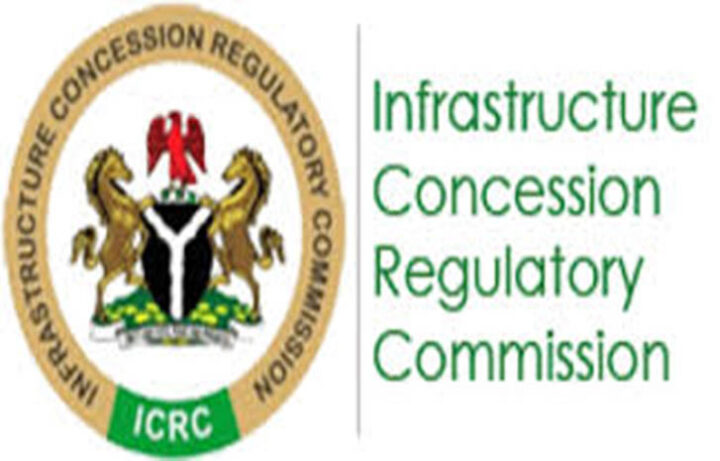The Infrastructure Concession Regulatory Commission (ICRC) has given the green light to the outline business case (OBC) for Nigeria’s proposed $60 billion bullet train project, marking a major step forward in the Federal Government’s push to modernise the country’s transportation system. The project, which aims to connect key cities with high-speed rail infrastructure, is expected to revolutionise travel, boost economic activities, and position Nigeria as a regional transport hub.
According to the ICRC, the approval of the OBC paves the way for the Federal Government to commence detailed procurement processes, including the engagement of private sector partners under a Public-Private Partnership (PPP) model. The commission noted that the bullet train project is designed to be commercially viable while delivering significant socio-economic benefits such as job creation, reduced travel time, and improved logistics efficiency.

The proposed network will cover strategic economic corridors linking Lagos, Abuja, Kano, and Port Harcourt, with future expansions planned to connect other major cities. Trains on the route will travel at speeds of up to 350 kilometres per hour, drastically reducing travel times between these hubs. For example, the Lagos–Abuja journey, which currently takes around 10–12 hours by road, could be completed in less than three hours once the project is operational.
Acting Director-General of the ICRC, Michael Ohiani, explained that the approval followed a rigorous review of the project’s financial model, technical specifications, and environmental impact assessment. He said the commission worked closely with the Federal Ministry of Transportation and other stakeholders to ensure that the proposal met both national development objectives and global best practices for high-speed rail projects.
“The bullet train is more than just a transport project—it’s an economic catalyst,” Ohiani said. “By providing fast, reliable, and modern rail services, we can open up new economic zones, reduce road congestion, and cut carbon emissions. This project has the potential to transform the way Nigerians travel and do business.”
He added that the next phase would involve preparing the full business case (FBC), which will include final design details, financing arrangements, and procurement strategies. This will be followed by the formal bidding process to select qualified concessionaires who will design, build, finance, operate, and maintain the rail system.
Government officials have stated that the $60 billion investment will be sourced through a blend of private sector funding, development finance institutions, and limited government equity. They believe the PPP structure will ensure the project’s sustainability while minimising the burden on public finances.
Transport analysts have welcomed the ICRC’s approval but stressed the importance of transparent procurement, robust project governance, and adequate risk management. They cautioned that previous large-scale infrastructure projects in Nigeria have suffered delays, cost overruns, and operational challenges due to poor planning or weak oversight.
Some experts have also urged the government to prioritise affordability and accessibility in the bullet train’s pricing model, noting that high fares could limit its use to wealthier travellers, thereby undermining its broader economic impact. They suggested integrating the bullet train system with existing urban transport networks to create a seamless travel experience for passengers.
Environmental advocates have called on the project’s planners to ensure compliance with sustainability standards, including measures to protect ecosystems along the rail corridors. They also emphasised the need for resettlement and compensation plans for communities affected by land acquisition.
The ICRC maintains that environmental and social safeguards are embedded in the project’s planning process, assuring stakeholders that all affected persons will be adequately compensated and that environmental impact mitigation strategies will be strictly enforced.
When completed, the bullet train is expected to play a pivotal role in Nigeria’s long-term economic diversification agenda. Beyond passenger transport, the network will support freight movement, enabling faster delivery of goods between ports, manufacturing hubs, and markets across the country.
The Federal Government has signalled its commitment to accelerating the process, with the Ministry of Transportation pledging to finalise the FBC within the shortest possible time. Officials believe the project could attract significant foreign direct investment and stimulate industries such as tourism, manufacturing, and real estate.
If implemented successfully, the $60 billion bullet train initiative would represent one of the most ambitious infrastructure undertakings in Nigeria’s history and a milestone in West Africa’s transportation development. Stakeholders now await the outcome of the next procurement stage, which will determine the calibre of investors and technical partners capable of delivering the mega project.
In the meantime, the ICRC has reiterated its readiness to provide continuous regulatory guidance to ensure the bullet train project is implemented efficiently, transparently, and in line with Nigeria’s national interest.
Support InfoStride News' Credible Journalism: Only credible journalism can guarantee a fair, accountable and transparent society, including democracy and government. It involves a lot of efforts and money. We need your support. Click here to Donate
